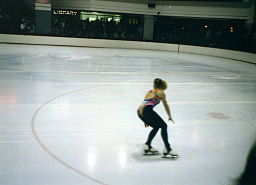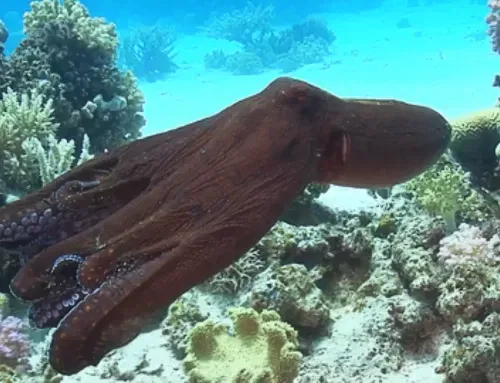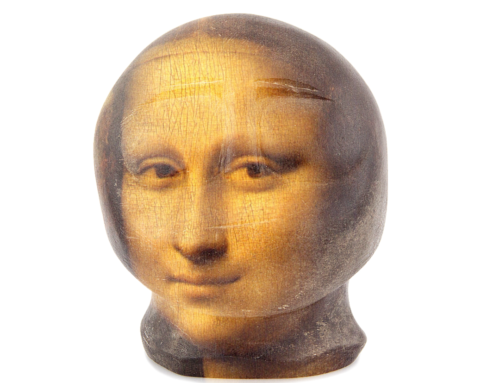“Bitch!” said the gentleman, before he sipped champagne.
“I hope she takes a tumble,” said the lady next to him, nodding.
“What a monster,” drifted across the room in a voice I couldn’t identify.

By Andrew Parodi (Own work) [CC BY 3.0 (http://creativecommons.org/licenses/by/3.0)], via Wikimedia Commons
Despite the injury, Kerrigan won the runner-up silver medal, a major accomplishment, although considered a disappointment by many, including me, rooting for a graceful Kerrigan victory. Alas, it was not to be; the Russian skater, Oksana Baiul, a bundle of fluffy doll-like energy, was chosen to bask in the golden glory of the highest throne.
Fast forward to last week. The movie, “I, Tonya,” spells out the harrowing story blamed on Tonya Harding, a major competitor at the Olympics.
When I saw the movie, I remembered the party as if yesterday (although it was 24 years ago!), and the extraordinary skating as the human drama played out on the world stage. But even more than the skating, I recalled the blanket of hatred that covered Tonya Harding, and the jeers she suffered.
Tonya was disqualified in the finals due to difficulties with her skates, much to everyone’s satisfaction, except mine.
It wasn’t that I knew Tonya Harding or anyone that did, or that I had inside information about the whacking incident, or that I knew that she was the first American woman to do a triple Axel. I didn’t even know exactly what that was. In fact, I thought Nancy Kerrigan was sensational – a post card of grace and innocence, brave, fantastic. I was a member of her fan club. Gold for her would have thrilled me, as it would have glittered for her (well, maybe it wouldn’t have thrilled me quite that much!).
But I suffered to see Tonya suffer, to be despised for a crime that no one was sure she had even committed or in what way she might have been involved. I didn’t like to see her lifetime of skating accomplishment unanimously dismissed. Now, she was vilified for her presumed act, which became her entire identity.
I quietly resented my friends for their attitude, but that had nothing to do with Tonya Harding herself. To me, their harsh blame, a pre-trial conviction, was like elevating themselves. The righteous jury stood together with a unanimous verdict of guilty.
In fairness, the movie revealed Tonja as a coarse, disturbed, poorly educated and difficult person. She called herself a redneck. She claimed that she didn’t know anything about the knee whack, although I’ve heard from the grapevine that she might have. However, she did agree to send an anonymous letter to Nancy Kerrigan, hoping to disturb her enough psychologically to skate tentatively at the Olympics. Tonya Harding was no innocent poster child for unfair treatment.
Yet, the movie also showed Tonja had endured a lifetime of abuse by the time the Olympics came around. An angry bitter mother beat and humiliated her, and drove her mercilessly since she was four to be a champion skater. Her father, who she loved, abandoned her when she was a little girl. Her husband beat and deceived her, and even wounded her once when he shot at her during one of their violent domestic arguments.
Despite her unfortunate history, I believe few people would side with Tonya Harding today. Explanations don’t excuse the unruly and chaotic behavior shown in the movie. My friend Stanton Samenow, a forensic psychologist, has written extensively about how the criminal mind always blames others for what doesn’t go their way, as Tonja did.
So, I ask myself, why did I resist blaming Tonya, why did I give her the benefit of the doubt, when blame, at least to some extent, seemed justified? Favoring Nancy Kerrigan is understandable – she was victimized, appealing and absolutely qualified for gold. And she was American, my country competing in the Olympics. But so was Tonya Harding. While I can’t answer convincingly why I empathized with Tonya Harding and felt apart from my friends, some thoughts come to mind.
First, a common enemy unifies people, especially in war-like or polarized situations. The Olympics, on the heels of the cold war, stressed competition against the Russians and East Germans, and judges from the competing countries determined the figure skating medals, creating an atmosphere conducive to having a common enemy. Tonya Harding became one at our benign party.
I have always resisted having others determine my feelings and thoughts. It’s not rational; it’s a guttural response and not connected with right or wrong. At times I have even questioned opinions that I intellectually agreed with. I remember leaving a small space in my mind open about O. J. Simpson’s guilt, or wondering whether the George W. Bush decision to invade Iraq might ultimately lead to a far-sighted benefit in the Middle East. And, that didn’t mean I was on their side. Not every feeling is in sync with logic.
Like most others, I write my own stories and set my goals and expectations based on personal experiences, including good fortune and successes coupled with disappointments and frustrations. I don’t share figure skating or Olympic competition with Tonya Harding, or her celebrity status at the time, or her life of abuse, or her choices and behavior patterns. I have, however, labored for accomplishments, whether as a youth in tennis tournaments, and later as a scientist, and today as a writer. I understand the frustration of striving to reach a horizon that keeps receding. I believe I shared that feeling, at least in part, with Tonja Harding. Perhaps that made others at the party appear self-satisfied, or members of a different club from my own.
Finally, I have often wondered about identity: are we as we think we are, as we would like to be, or as others see us. Yes, I know, it’s a mixture, it depends on what specifically we are considering – our parenting or our medals or our relationships – and so forth: it’s a self-indulgent, unproductive question, too general to consider. But, I do think about it.
Consideration about who Tonya Harding was drifted into my feelings the night she was disqualified from the Olympics, because of a shoelace snag no less. As much as she was criticized then, her devotion to excel above all others was as much as, maybe more than, her rougher side. Few can point to having made as great an effort or having achieved as much as she did, and under such difficult conditions growing up. She will be long remembered as a great skater, and yes, the first American woman to do a triple Axel. I now know what that is.
So, who was Tonya Harding: a tragic hybrid, a champion skater, a poor sport, a criminal, a Macbeth or King Lear of sorts? Just who was she? All of them, I think, one big package of a human being, who played the hand of cards she was dealt the way she knew how to, as we all do with the cards we’re dealt.
I couldn’t be a member of the hate group then, I don’t think I could be today.






Leave A Comment